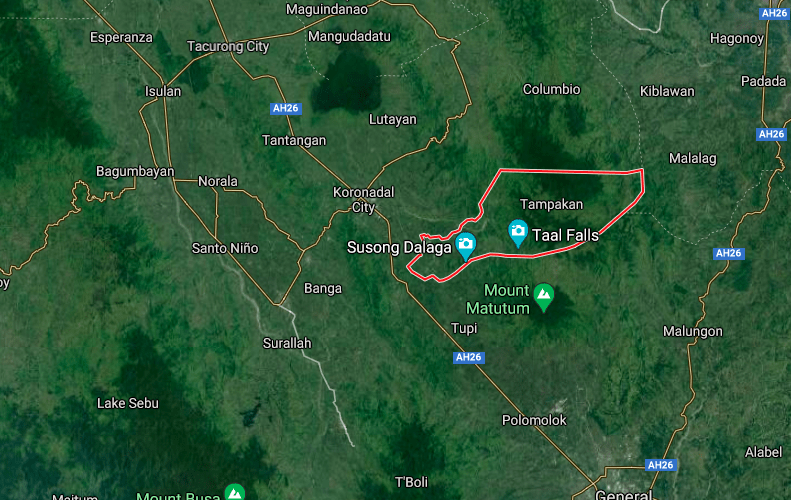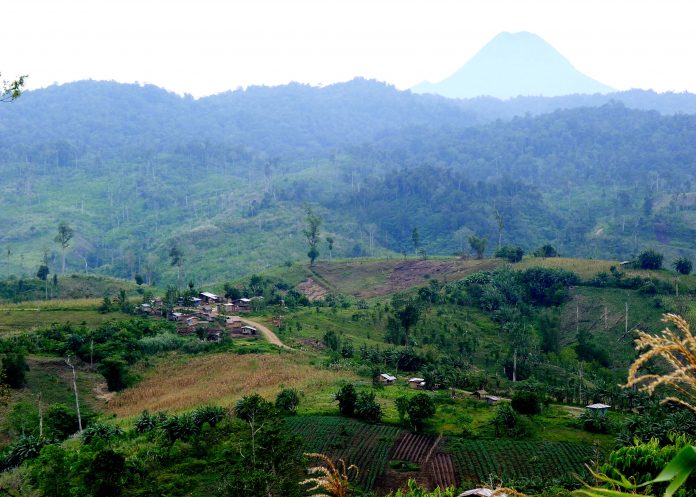Officials in the province of South Cotabato are complaining over alleged “interference” of Catholic Church leaders in the review of an existing ban on open-pit mining in the province.
A report on The Sun Monitor quoted provincial board member Hilario De Pedro saying that Catholic Church leaders are reportedly campaigning against politicians who favor the amendment of the mining ban.
The provincial legislator said it is unfair to be threatened by a religious group who are against mining. “We are doing our work here correctly, fairly, and sensibly,” De Pedro was quoted in the report.
In August, the Diocese of Marbel launched a signature campaign to oppose moves to lift a ban on open-pit mining in the province of South Cotabato.
Bishop Cerilo Casicas of Marbel said the diocese calls on the provincial government to “stand firm in its duty to ensure the safety, convenience, and well-being of its constituents.”
The prelate said the local government must “protect the people and the environment” by upholding the Provincial Environment Code that prohibits open-pit mining operations.
Open-pit mining, also known as open-cast or open-cut mining and in larger contexts mega-mining, is a surface mining technique of extracting rock or minerals from the earth from an open-air pit.
It is opposed by pro-environment groups because the process causes changes to vegetation, soil, and bedrock, which ultimately contributes to changes in surface hydrology and groundwater levels.
“There are people who are lobbying before the provincial government to lift the ban on open-pit mining. We cannot allow that to happen,” said the prelate.
Bishop Casicas said his diocese will mobilize Basic Ecclesial Communities to gather support against the lifting of the ban “but the Church will allow the public to decide on their own judgment.”
The prelate urged the faithful to “discern on why we need to act to protect the environment and oppose any policy that will threaten Our Common Home and the poor communities.”
“The [diocese] will make mining and the environment an important issue during the coming elections,” said the bishop.
He said it will be part of the “discernment in choosing the candidates” for next year’s national elections.

Demands of tribal communities
De Pedro, however, said the provincial government’s investigation into the matter was a response to the demands by tribal communities to amend the local environmental code.
He said Blaan and T’boli residents of South Cotabato are given the right to utilize the mineral deposits in Tampakan to benefit their communities.
Several tribal leaders recently signed a manifesto stating their desire to extract the mineral deposits in the area and urging the provincial board to lift the open-pit mining ban.
De Pedro called on Church leaders to participate in peaceful dialogues and openly explain their reasons for opposing any mining activity in Tampakan.
Tampakan mines in Mindanao
In March, the municipal council of Tampakan passed a resolution seeking the lifting of the provincial ban on open-pit mining.
The existing ban is reported to be the reason behind the delay of the development of the Tampakan Mining Project, Southeast Asia’s largest known undeveloped copper and gold minefield.
Tampakan Forum, a network of environmental activist groups, tribal communities, and ecumenical movements started the roll-out of the signature campaign in August.
The Forum, which was first organized in 2011 by the Diocese of Marbel, was revived on February 7, 2020, to spearhead the campaign against the large-scale mining project.
Father Jerome Millan, director of the diocesan social action center and convenor of Tampakan Forum, said there is “enough reason” for the provincial government to uphold the ban on open-pit mining.
“If permitted, the mining project will threaten our food supply, water sources, and will displace thousands of residents especially the Indigenous communities,” the priest said.
The Tampakan copper-gold mine in Mindanao is the single largest foreign direct investment in the Philippines. It has the potential of yielding an average of 375,000 tons of copper and 360,000 ounces of gold per year.









